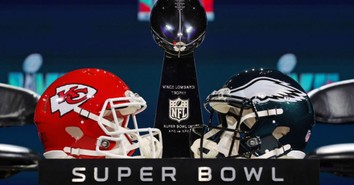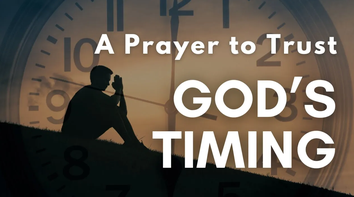How the New Orleans Terrorist Attack Reminds Us to Seek God as Our Refuge
“He was hell-bent on creating the carnage and damage that he did. This man was trying to run over as many people as he possibly could.” This is how New Orleans Police Chief Anne Kirkpatrick described the driver of a pickup truck flying an Islamic State flag who plowed into a large crowd in New Orleans’s French Quarter early yesterday morning, killing at least fifteen people and injuring more than thirty in what authorities are calling a terrorist assault.
The FBI identified him as forty-two-year-old Shamsud-Din Jabbar, a US-born citizen from Texas and an Army veteran. Hours before the attack, he reportedly posted videos on social media indicating that he was inspired by ISIS. However, the FBI states that they do not believe Jabbar was solely responsible for the attack, which President-elect Donald Trump called “an act of pure evil.”
At times like this, we instinctually ask how an all-knowing, all-loving, all-powerful God could allow such a tragedy (cf. Habakkuk 1:13). In response, theologians note that God created humans to love him and each other (Matthew 22:37–39) and endowed us with the freedom necessary to make this choice (cf. Joshua 24:15). When we misuse this freedom, the consequences are not his fault but ours.
The God who made each of us in his image (Genesis 1:27) commands us to venerate life as he does (cf. Exodus 20:13). The horrific attack yesterday morning violated his clear will and grieved his loving heart.
But there’s another side to this equation: If we blame God when humans misuse their God-given freedom, should we not credit him when we use such freedom for good?
How Israel Grieves Their Dead
New Orleans police officers risked their lives yesterday to protect those they are pledged to serve. Two were shot, but they stopped the shooter before the carnage could become even worse. Bystanders at the scene also attempted to help the victims.
On a different level, those who play in this afternoon’s Sugar Bowl in New Orleans and those who attend the contest are responding to the tragedy in an important way as well. We might say that nothing could be more trivial in the midst of tragedy than a college football game. But continuing with life while grieving the victims honors them by testifying that terrorism will not have the final word.
I’m reminded of a conversation some years ago with two former Shin Bet agents in Israel. Both men protected the prime minister at one point and were still engaged with Israeli intelligence. We were in Tel Aviv, where we passed an outdoor café. One of the men told our group that a terrorist had struck that very location a few months earlier, killing several Israelis. However, I could see no evidence of the attack—no plaque commemorating the dead, nothing to indicate the tragedy that had occurred.
The agents explained that this is one way Israel fights terrorists: by refusing to allow them to terrorize. As soon as possible, they return life to “normal” as best they can. They grieve their dead, of course, but believe they honor their memory by continuing to live.
We saw the same in southwest Israel after the October 7 atrocities as families moved back into kibbutzim that were devastated to restore them as soon as possible.
Why Should We Make God Our “Refuge”?
One of my favorite psalms begins, “God is our refuge and strength, a very present help in trouble” (Psalm 46:1). This is a type of Hebrew poetry known as “synthetic parallelism,” whereby the second phrase amplifies the first. In this case, the verse can be literally translated, “God is presently our place of refuge and mighty power, an exceedingly available helper as we face adversity and anguish.”
Why should we believe this to be true?
- Because of what he has done in the past: “Come, behold the works of the Lᴏʀᴅ, how he has brought desolations on the earth” (v. 8).
- Because of what he is doing in the present: “He makes wars cease to the end of the earth” (v. 9).
- Because of what he will do in the future: “I will be exalted among the nations, I will be exalted in the earth!” (v. 10).
It is therefore only logical to conclude: “The Lᴏʀᴅ of hosts is with us; the God of Jacob is our fortress” (v. 11).
However, as we have seen, our Creator honors the freedom he has given us. As a result, unlike the kings of history whose subjects had no choice in the matter, this sovereign rules only those who humble themselves before him as their king.
Accordingly, he can lead only those who will follow and give only what we will receive. And when our secularized culture tempts us to believe, “I am the master of my fate: I am the captain of my soul,” we miss what our all-powerful Father gives to those who trust him.
How to Face an “Unknown Future”
Today is a day to grieve for the victims in New Orleans and mourn with their loved ones. It is a day to pray for law enforcement officials as they bring all perpetrators to justice. It is a day to give thanks for police officers and others who risk their lives to protect ours.
But it is also a day to recognize the frailty of life and the unpredictability of the future. Not one of the victims of the attack had any idea that tragedy would find them yesterday. Nor do you and I have any idea what will find us tomorrow.
As a result, the safest way to begin every day is by making Christ the king of that day. It is to dethrone ourselves and enthrone him by submitting to his Spirit’s guidance and power (Ephesians 5:18). It is to live for his glory rather than our own, seeking to advance his kingdom and trusting the consequences to his providence (Matthew 6:33).
Corrie ten Boom stated:
“Never be afraid to trust an unknown future to a known God.”
Will you take her advice today?
*Denison Forum does not necessarily endorse the views expressed in these stories.
Quote for the Day:
“Our doubts do not destroy God’s love, nor does our faith create it. It originates in the very nature of God, who is love, and it flows to us through our union with his beloved Son.” —Jerry Bridges
Photo Courtesy: ©Getty Images/Chris Graythen/Staff
Published Date: January 2, 2025
Jim Denison, PhD, is a cultural theologian and the founder and CEO of Denison Ministries. Denison Ministries includes DenisonForum.org, First15.org, ChristianParenting.org, and FoundationsWithJanet.org. Jim speaks biblically into significant cultural issues at Denison Forum. He is the chief author of The Daily Article and has written more than 30 books, including The Coming Tsunami, the Biblical Insight to Tough Questions series, and The Fifth Great Awakening.
The views expressed in this commentary do not necessarily reflect those of CrosswalkHeadlines.
For more from the Denison Forum, please visit www.denisonforum.org.
The Daily Article Podcast is Here!







